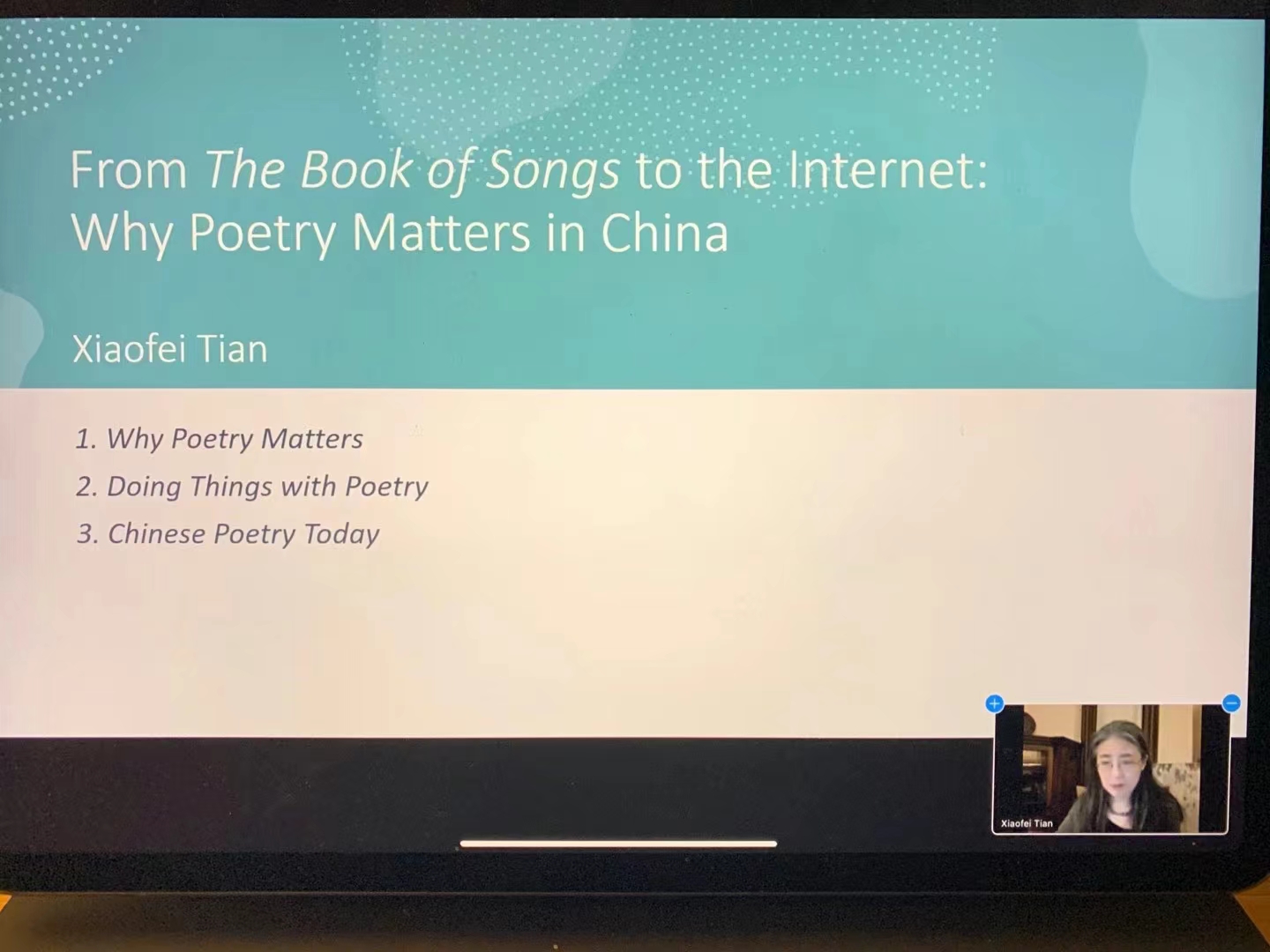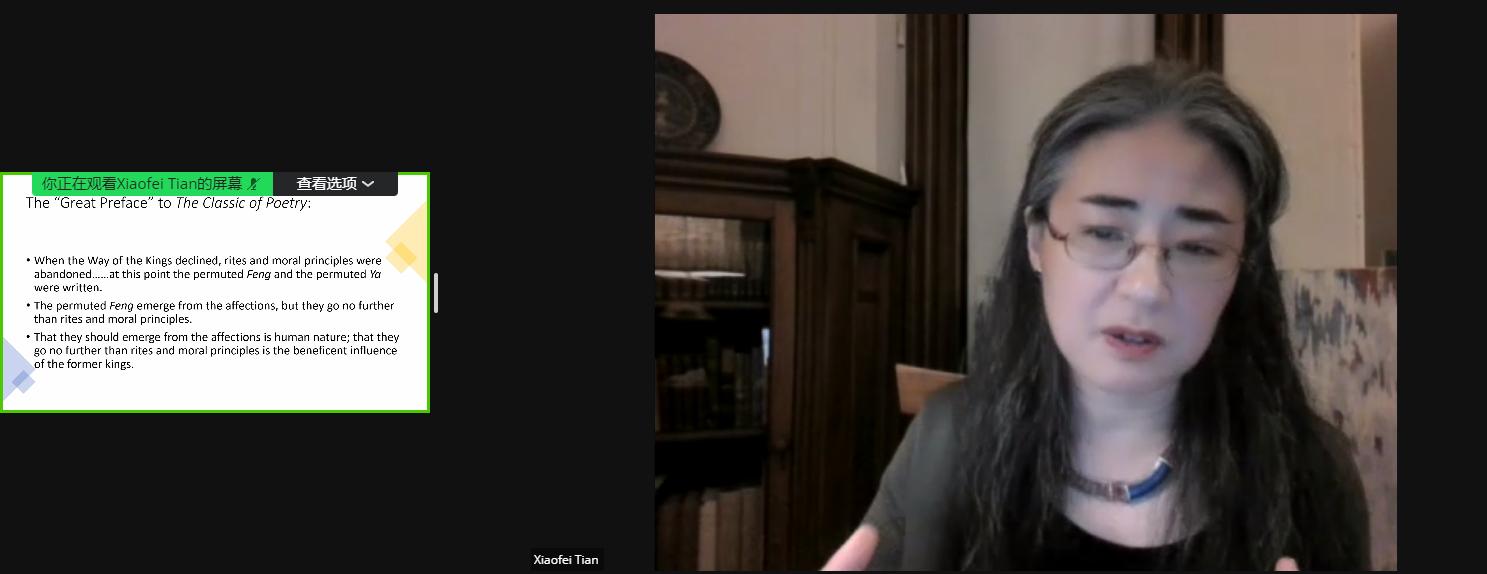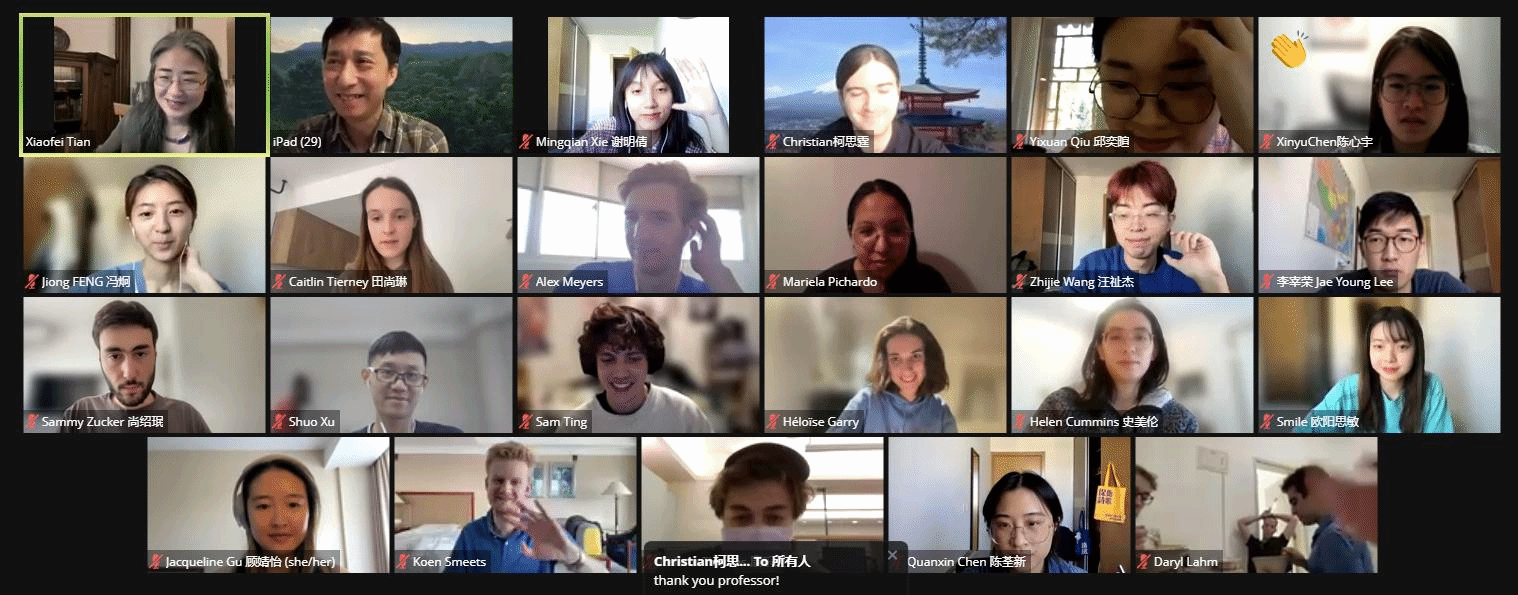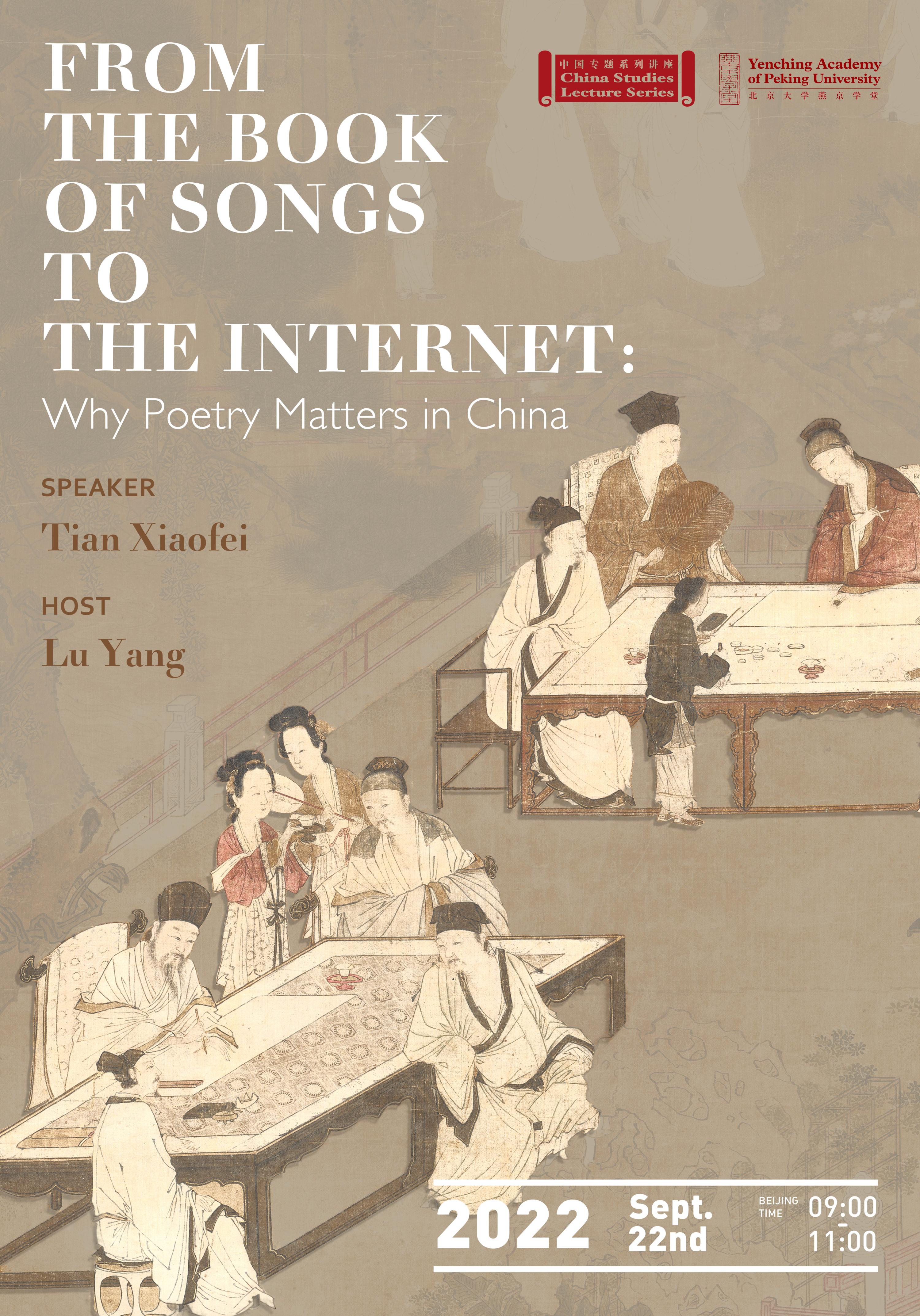On September 22, Yenching Academy held a lecture, “From The Book of Songs to the Internet: Why Poetry Matters in China,”as part of its Topics in China Studies Lecture Series for the 2022 Fall semester, taught by Professor Tian Xiaofei, who teaches Chinese Literature at Harvard University. Yenching Academy Director of Graduate Studies Prof. Lu Yang hosted the lecture, and Yenching Scholars in the 2022 cohort joined the online session. Prof. Tian explored the origins and history of Chinese poetry and discussed how lively and exuberant it is today.
Professor Tian divided the lecture into three parts. She first began with the Classic of Poetry, discussing why poetry is essential to our understanding of Chinese cultural tradition. To facilitate a clearer comprehension of this age-old belief, she used quotes from Mencius, Book of Documents, and the Great Preface to the Classic of Poetry to explain the meaning of poetry and emphasize how poems can articulate the writers’ minds and change customs. Prof. Tian elaborated on two important points about the belief that The Classic of Poetry performs moral and political functions: music, which influences and teaches people; and free speech, which provides the opportunity to criticize the superior without being punished.

Second, the Harvard University Professor showed how the ancients dealt with changes with the poem “Fire in the middle of June in the year Wu Shen” (戊申岁六月中遇火) written by Tao Yuanming (365-427). She delivered a positive message to students, encouraging them to stay focused irrespective of life’s challenges. “No matter how things change, we should do what we are supposed to do and focus on what we can do and do it well so that we can transcend sadness and anxiety caused by COVID-19,” she pointed out.
Third, Professor Tian discussed modern and contemporary Chinese poetry written in both classical styles and modern vernacular, observing how people continue to engage with social life and deal with changes and transitions through writing and reading poetry today. She argued that there had been a hybrid space in modern times where poems written in classical styles and those written in modern vernacular language continue to coexist and flourish throughout these decades. She offered several examples of internet poems and advocated studying the two forms of poetry together and thinking of modern Chinese poetry spatially, that is, as a hybrid multidimensional space.

Professor Tian is very optimistic about Chinese poetry and looks forward to seeing how it will continue to evolve and the factors that will influence it.
Yenching Scholars raised several questions after Prof. Tian’s presentation. One question centered on the concept of embodiment. “In Western Literature Circles, especially in America, we talk a lot about ‘Narrative Empathy’. How can we preserve this process through political and cultural turmoil and across social and cultural boundaries? What does this process of embodiment entail and translate to for other people from different localities and in different historical eras?”
Prof. Tian responded that reading literature is an important part of humanistic education. The value of education in literature and poetry lies in empathy and understanding of certain shared values among human beings. The most important thing about empathy and kindness is thinking beyond oneself and understanding others. The challenge is that it requires more knowledge, including historical and cultural contexts, for people from different localities or eras to better understand other human beings.

Another question concerned Chinese poets’ different conveyance or interpretation of similar themes. “Reading Tao Yuanming’s ’Fire in the middle of June in the year Wushen’ reminded me of a famous poem named ‘A Song on How My Thatched Roof was Ruined by the Autumn Wind’ ( 茅屋为秋风所破歌) by Du Fu (712-770). With a similar theme, the two poets give distinctly different interpretations. Is this difference due to personality differences or distinctive historical backgrounds?”
Prof. Tian explained that Du Fu felt miserable whenever he suffered a personal setback or misfortune; however, he considered other people who also suffered from similar misery. According to the professor, “I think we face many life challenges which may not differ too much among human beings, but we deal with them differently. There is something in common, though. That is, poetry becomes the way of dealing with things in life, and we can see that poems give wonderful manifestation of how poets actively think through their problems and challenges and arrive at final resolution.”
